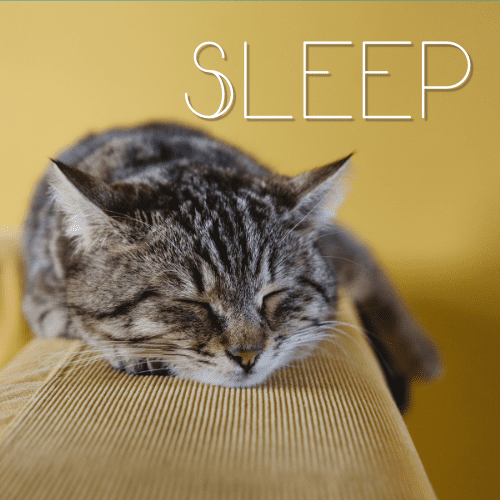A Good Night’s Sleep
Tuesday April 27, 2021

A good night’s sleep is important for everyone – no matter your age or stage of life. But it’s sometimes easier said than done. Right? It can be hard to keep a regular sleep schedule. And it can be hard to go to sleep and stay asleep.
Sleep disturbances are especially common in people with dementia. They may wake up during the night, wander, get dressed for the day, or rummage around the house. When you are living in the same house as someone who is struggling with this, it affects your sleep, too.
The good news is there are steps you can take to set your loved one up for a better night’s sleep.
Tips for Sleep Success
- Limit caffeine intake, especially after lunch. If your loved one is currently drinking caffeine after lunch, make a slow switch to decaf beverages over multiple days. Do not stop cold turkey, or it can cause other problems, like headaches and irritability.
- Limit sugary foods, especially in the late afternoon and early evening.
- Limit napping. An hour or so nap at midday is fine, but if your loved one sleeps more than a couple of hours during the day, they may not be tired at night. Too much napping can lead to days and nights getting mixed up.
- Keep the evening peaceful. Pay attention to the sights and sounds around you. Are there loud noises or bright lights? Keep the noise level low and dim lights for a more calming atmosphere.
- Try aromatherapy, like an essential oil diffuser. Scents like lavender and peppermint have shown positive effects on sleep.
- Keep your loved one active during the day – physically and mentally. Take a long walk in the afternoon. Do chair exercises. Schedule social activities.
- Go to the bathroom just before bed to cut down on the number of nighttime bathroom trips.
- Comfort is key! Keep the room at a good temperature. Wear comfortable night clothes, etc.
- DO NOT start giving sleep aids without talking to a physician first. Some medications are ill-advised for a person with dementia. Also, sleep aids could cause your loved on to be more groggy and more likely to fall during the night.
- Ask your physician about your loved one’s medications. A particular medicine could be causing sleep disturbances. They could be taking a medication in the morning that makes them sleepy during the day and wide awake at night.
- Work with your physician to rule out medical reasons for sleep disturbances, such as sleep apnea, restless leg, depression, or anxiety.
- If you and your loved one sleep in separate rooms, and you are concerned about their movements during the night:
- Put an inexpensive baby monitor in your loved one’s room, so you can hear when they get up or start moving around.
- Use a bed alarm. You put a pad under where your loved one sleeps, so when they start to get out of bed, the alarm goes off until you silence it.
When your loved one gets a good night’s sleep, it allows you to have a better night’s sleep. Both of you can be in a better frame of mind, rested and ready to tackle the day!




